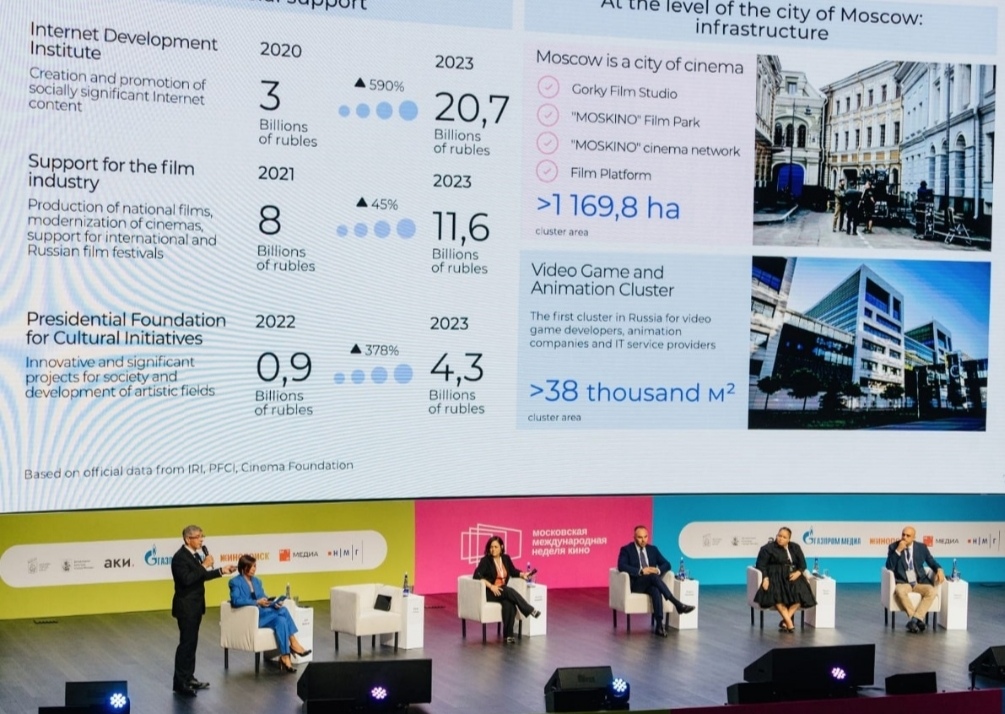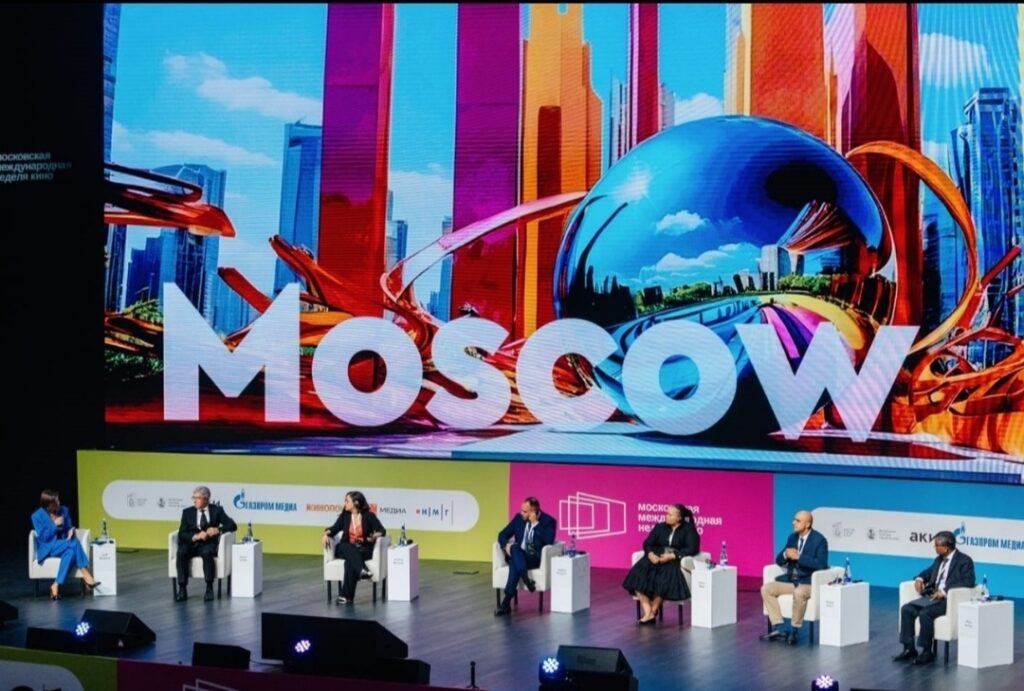
Chennai, Sep. 2024
The global film industry converged in Moscow for the first-ever Moscow International Film Week (MIFW). With participants from more than 40 countries, the event was a melting pot of cinematic creativity and international cooperation. Featuring 70 films and drawing more than 600,000 attendees, MIFW has firmly established Moscow as a new hub for global cinema.
A Hub for International Collaboration
The business program of MIFW was a significant part of the event, serving as a platform for dialogue and cooperation between key players in the global film industry. More than 130 delegates from 47 countries participated, including prominent producers, screenwriters, directors, and government officials representing major global film markets. Throughout the week, these industry leaders engaged in over 30 business meetings, including panel discussions, and workshops, focusing on innovative strategies to advance the global film industry and explore new avenues for collaboration.
Several countries, including China, India, Turkey, Egypt, the MENA region and a lot more, expressed a strong interest in deepening their cooperation with Russia. These discussions resulted in the signing of multiple agreements, which will facilitate future co-productions, joint ventures, and the exchange of creative resources. The interest from foreign countries highlights Russia’s growing influence and attractiveness as a partner in the global cinema landscape.
Plenary Session Highlights
The plenary session, which served as the opening of the business program, featured high-level discussions with representatives from creative industries. Among the distinguished speakers were Alexey Fursin, Minister of the Moscow Government and Head of the Department of Culture, and prominent officials from China, India, Turkey, Uzbekistan, Kazakhstan, South Africa, Panama, and other nations. The session emphasised the critical role of cultural exchange in fostering global understanding and cooperation, and it underscored the importance of supporting local content on international platforms.
Participants agreed to develop cooperation between their respective national creative economies and to support each other in promoting local content in international markets. This commitment reflects a broader trend towards strengthening cultural ties through the shared medium of cinema, which serves as a bridge between different cultures and societies.
An Extensive Cultural Showcase
Beyond the business negotiations, MIFW included more than 1,450 events held across the city. These events were designed to engage both industry professionals and the general public, offering a rich variety of experiences that highlighted the diversity and creativity of global cinema.
One of the standout features of MIFW was the sheer scale and variety of its screenings. With nearly 370 film screenings, the festival presented an eclectic mix of Russian and international films, many of which were shown in unique and unconventional venues. From the sports complex and pools to the rooftops of hotels, these locations provided a distinctive atmosphere that added to the cinematic experience. Audiences had the opportunity to see films from countries as diverse as China, Egypt, India, Iran, Kazakhstan, Morocco, the MENA region, South Korea, Spain, Thailand, Turkey, Uzbekistan, and Vietnam and others, all while enjoying the stunning backdrop of Moscow’s urban landscape.
In addition to the screenings, the cultural program included around 200 masterclasses, lectures, and workshops that offered valuable insights into the filmmaking process. These sessions covered a wide range of topics, from the basics of acting, screenwriting, and cinematography to more specialised subjects such as public speaking and the nuances of working behind the camera. Industry professionals, including acclaimed Russian and international filmmakers, shared their knowledge and experience, providing attendees with a unique opportunity to learn from the best in the business.
MIFW was not just about showcasing films; it was also about celebrating the creativity and innovation that drive the global film industry. The event underscored Moscow’s commitment to supporting the creative arts, particularly through the development of world-class infrastructure.
Massive Public Engagement
The response from the public was overwhelming, with more than 600,000 people attending various events throughout the week, including film screenings and workshops to creative contests and guided tours of iconic film locations. Thousands of people took part in masterclasses, casting calls, and guided tours.
The event also included a special program for children and teenagers, featuring over 100 activities designed to engage young audiences and inspire the next generation of filmmakers. The emphasis on youth engagement highlights Moscows commitment to nurturing future talent and ensuring that the creative industries continue to thrive in the years to come.
Looking Ahead
The Moscow International Film Week has been a resounding success, both in terms of participation and the quality of the programs offered. This inaugural event has brought together filmmakers, industry professionals, and cinema enthusiasts from over 40 countries, creating a vibrant and dynamic atmosphere of cultural exchange. We have hosted over 300 screenings, including premieres and unique films that are rarely shown in Russia.
The business program has been particularly impactful, fostering new collaborations and partnerships across the global film industry. Overall, the Film Week has exceeded our expectations, positioning Moscow as a significant player on the international cinematic stage, said Alexey Fursin, Minister of the Moscow Government and Head of the Department of Culture of the City of Moscow.


